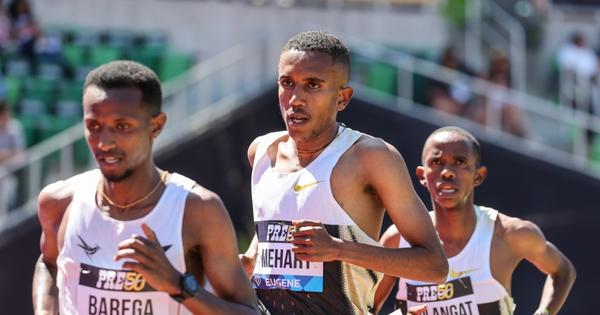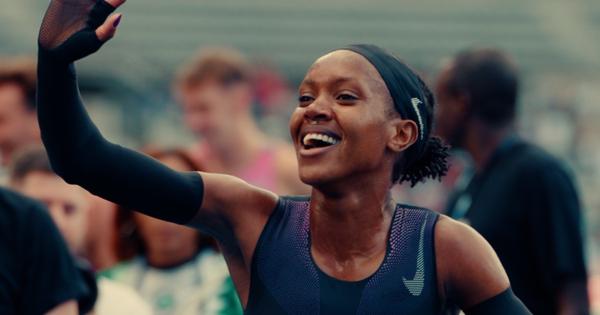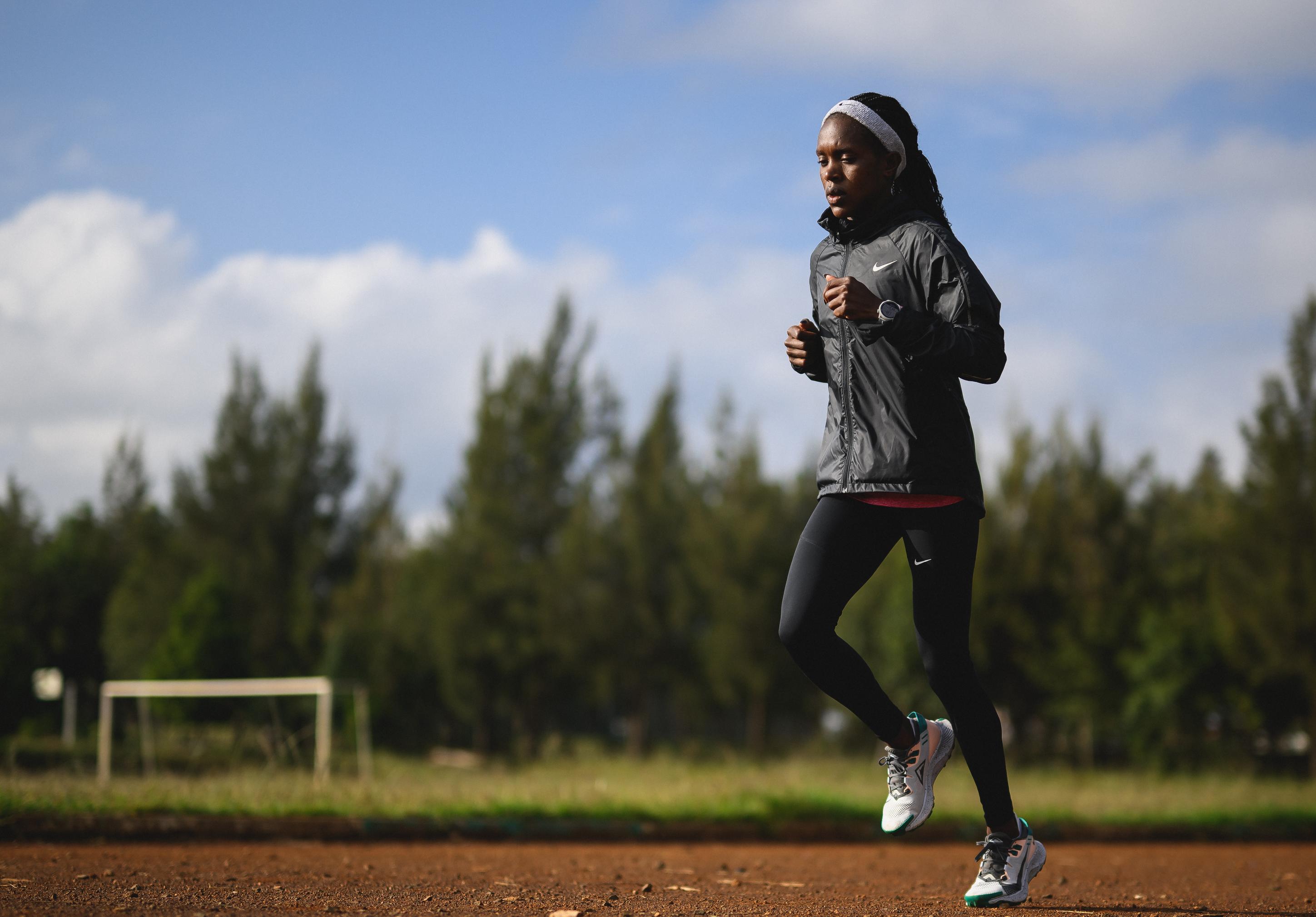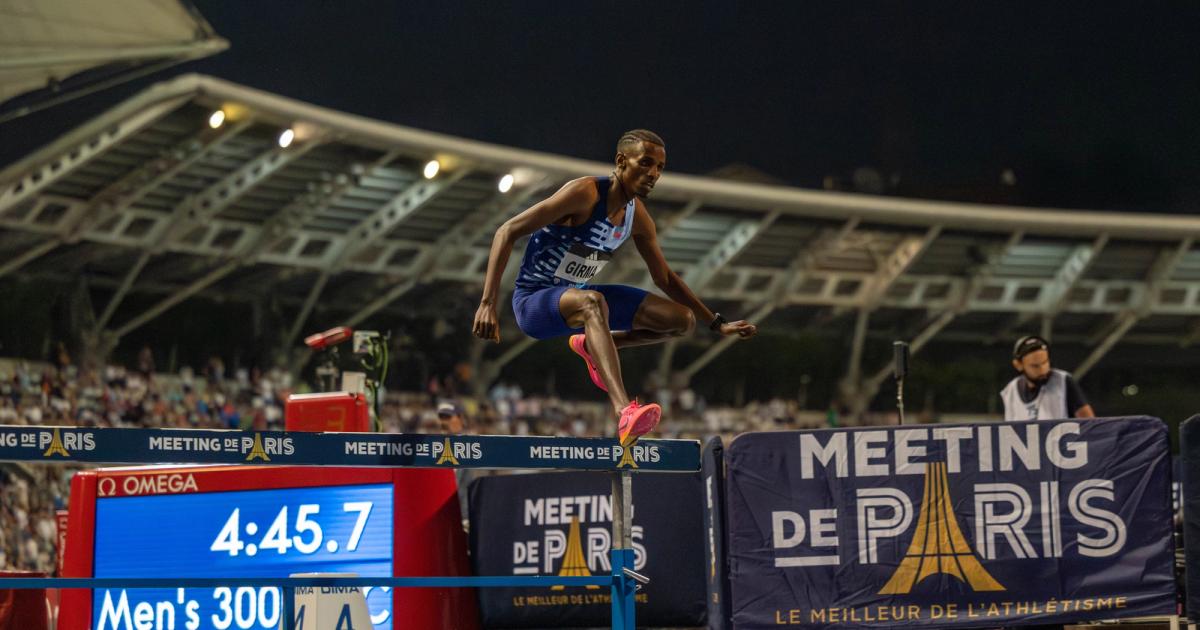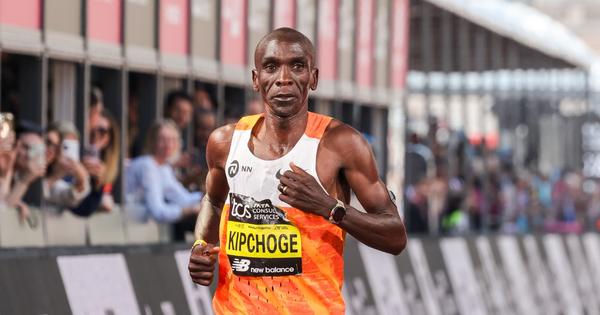By Hannah Borenstein
July 25, 2025
On June 3, 2025, Athletics Kenya announced that the women’s 5,000 and the men’s 10,000m at the Prefontaine Classic would serve as the country’s selection races for the World Championships. Despite the sky-high stakes for the 11 Kenyan athletes in the 10,000m field, many of the names on the start list that most interested viewers were the ones with Ethiopian flags beside them.
Notable entrants included 2021 10,000m Tokyo Olympic Champion, Selemon Barega, who ran his debut marathon in February. 2024 10,000m Olympic silver medalist, Berihu Aregawi, known for his fearlessness and willingness to push the pace was also in the race. Then there was Biniam Mehary, an 18-year-old phenom who some believe could be Ethiopia’s next great, truly dominant icon.
The previous year, the same trio battled for Olympic spots, along with Yomif Kejelcha, who won the official Ethiopian trials race, which took place in Nerja, Spain. Aregawi and Barega finished in second and third closely behind Kejelcha, and while Mehary finished fourth, missing out on a guaranteed spot, he still ran a blisteringly fast time of 26:37.93, taking four seconds off Sammy Wanjiru’s 19-year-old world U20 record.
This year’s race in Eugene was not officially billed as an Ethiopian trial for the 10,000m. But since the Ethiopian Athletics Federation announced earlier in the year that they would not hold a 10,000m trial as they had the previous year for the Olympics, athletes, media, agents, and coaches, quickly surmised this would also serve as their unofficial selection event.
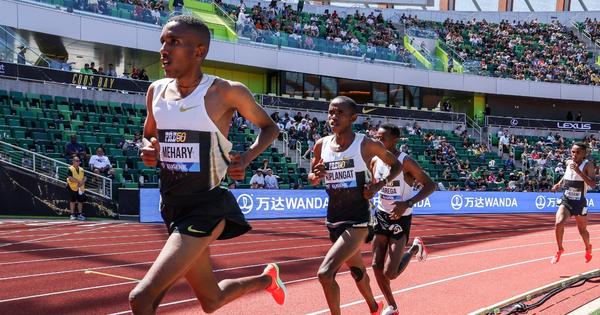
Biniam Mehary - 2025 Prefontaine Classic | Photo by Kevin Morris / @kevmofoto
Coming in, Mehary, Barega, and Aregawi, planned to push the pace together, as they all knew they would need to run fast times to secure a spot on the World Championship team. They arranged split pacing duties, but the final laps would be all about beating the others. Mehary surprised fans, and to a large extent himself, in out-kicking Barega and Aregawi—two athletes he’s long looked up to—for both the win and the race within the race. While they all hoped for faster times, he was elated to have beaten his senior competitors. “I was hoping to break my previous record,” he said following the race, “but I’m really happy to have run my fastest time and taken down such strong athletes.”
Ethiopians and Kenyans breaking world U20 records is by no means new. Often, their passport ages are not entirely accurate; birth registration rates in Ethiopia are low, especially in the poor countryside where the majority of athletes come from. When they are at the level to begin competing internationally and need to apply for passports, many runners are not entirely sure of their ages. And because there has been a pattern of age fabrication in the country—runners sometimes stating they are younger than they are for competitive advantage—many fans and media suspect Ethiopian runners are older than they say they are, deliberately manipulating the system.
Mehary, however, especially to those who have been following his progression within Ethiopia, seems different. Because he is not only listed as 18 years old; he looks 18 years old. And while winning road races in Ethiopia the past few years, he’s looked his age—young, awkward, and very much still developing—each year. And in learning about his back story and unique background, it’s not terribly surprising he could be poised to be an up-and-coming Ethiopian legend.
“Most people cite Haile [Gebrselassie] or Kenenisa [Bekele] to be their greatest inspiration,” Mehary explained after winning the Pre Classic, “but my role model is my uncle, Gebregziabher Gebremariam.”
"'Most people cite Haile [Gebrselassie] or Kenenisa [Bekele] to be their greatest inspiration,' Mehary explained after winning the Pre Classic, 'but my role model is my uncle, Gebregziabher Gebremariam.'"
Gebremariam, the now-retired Ethiopian runner, was one of the best in the world in the early aughts. After winning the World Junior Championships in the 10,000m in 2002, Gebremariam often found himself finishing just behind Kenenisa Bekele in domestic and international competitions alike. In the 5000m at the 2004 Olympic Games—arguably the greatest track race of his career—he finished fourth, behind Hicham El Guerouj, Bekele, and Eliud Kipchoge.
In 2010, Gebremariam debuted and won the New York City Marathon in a time of 2:08:14, beating Gebreselassie. He went on to enjoy a successful marathoning career, all the while being married to Werknesh Kidane, who twice represented Ethiopia at the Olympic Games and won a silver medal in the 10,000m at the 2003 World Championships.
Gebremariam was born in the Tigray region when the country was under control of the Derg—the military regime that ruled Ethiopia from 1974 – 1991. Because the Tigrayan People’s Liberation Front (TPLF) had launched efforts to erode the Derg’s power, Gebremariam’s hometown, Hawzen, was bombed during his childhood, and two of his brothers died as a result of the attack.
Following the downfall of the Derg in 1991, Gebremariam lived a humble life helping his parents on the farm, and only took up running after his brother encouraged him to try. He achieved rapid success in regional competitions, and in 2001 he traveled to the capital Addis Ababa to represent his region. From there, he quickly made his way through the club system in Ethiopia, and was ultimately selected for his first international team in 2002. That same year he won the Great Ethiopian Run, beating Kenenisa Bekele and Sileshi Sihine.
There are significant parallels and differences to Mehary’s trajectory so far. Mehary, too, hails from the region of Tigray, which was embroiled in a hostile civil war from 2020 – 2022, though tensions still exist today. Like his uncle, Mehary began running and succeeding at the local district level, but did not opt to go the club route.
“My uncle [Gebremariam] is friendly with Hilufe [Yihdego] who is also from the region, and Gudaf’s [Tsegay] husband and coach,” Mehary explained. “[Gebremariam] called Hilufe and told him I wanted to come to Addis Ababa to train, so I joined his training group and he facilitated the transition.”
In 2023, Mehary came to Addis Ababa to work with Yihdego and took the running world by storm. On November 19th, 2023, he won the 23rd edition of the Great Ethiopian Run by 24 seconds, 21 years after Gebremariam won the race. Just 16 at the time, in podium photos Mehary looks like his competitors’ much, much younger brother.
The Great Ethiopian Run, a 10km road race held 7,500+ feet above sea level in Ethiopia’s capital, hosts 45,000 participants and has become the biggest road race in Africa. On the elite level, it has served as a springboard for the country’s most successful athletes. In addition to Haile Gebreselassie and Mehary’s uncle, other notable victors on the men’s side include Hagos Gebrhiwet, Tamirat Tola, Selemon Barega and Berihu Aregawi.
That win similarly served to announce Mehary’s arrival on the elite global stage. In February of the following year, he broke Jakob Ingebritsen’s world U20 in the indoor 1500m, running 3:34.83. (That record has since been broken by Australia’s Cam Myers.) Over the summer, Mehary was called up to run the 5000m at the Olympics in Paris, replacing Yomif Kejelcha in the event, where he finished sixth in 13.15.99.
“I really prefer the 5000m over the 10,000m,” Mehary said, though he knows his latest result means he will likely be selected for the latter for the World Championships. “I enjoy the tactics in the 5000m, and the competitors are challenging and fun to race.”
In 2024, Mehary defended his Great Ethiopian Run title, having to out kick his older competitors in the final straight. He was asked about his uncle in post-race interviews and repeated, “I really want to be like him, and winning this race twice is a good step in that direction.”
Most athletes do not have this kind of familial guidance when they enter the running world. While many siblings have pursued the sport at the same time, successful runners who become parents often want their children, nieces, or nephews to pursue education and business rather than running. Thus, most young runners, lacking that sort of support system and guiding hand, forgo their schooling to take on the risky endeavor of athletics and come to the city with little support.
Mehary’s living situation is unique in this way. “I live in Kotobe with [Gebremariam’s] older brother and his family,” he said. Kotobe is a neighborhood in northeastern Addis Ababa where many athletes live a more hardscrabble existence, typically in cramped quarters shared with other aspiring Olympians.
His uncle, aunt, and their four young children have learned how to support Mehary’s training needs. “I eat all of my meals with them and spend time after training with the family,” he added. Of the four children, the eldest is currently 12 years old. When asked if he runs, Mehary paused and said sheepishly, “… he tries.”
It’s not clear if it runs throughout the entire family yet, but Mehary may one day become a similar role model to his cousins as his uncle was to him. Until then, he’s focused on competing against the best, often five to ten years his senior. So far, it seems, he’s able to do just fine.
"Until then, he’s focused on competing against the best, often five to ten years his senior. So far, it seems, he’s able to do just fine."
Gebremariam will be watching his nephew at the 2025 World Championships in Tokyo this September from his home in Washington, D.C. In 2007, Gebremariam competed in Osaka, Japan at the World Championships, where he placed 6th in the 10,000m. Bettering that result with a victory or a global medal at the event would do more than contribute to Mehary’s meteoric rise. It would contribute to his uncle’s legacy and help bring home the idea that familial support for the next generation goes a long way.
___________________
Keep up with all things track and field by following us across Instagram, X, Bluesky, Threads, and YouTube. Catch the latest episodes of the CITIUS MAG Podcast on Spotify and Apple Podcasts. For more, subscribe to The Lap Count and CITIUS MAG Newsletter for the top running news delivered straight to your inbox.
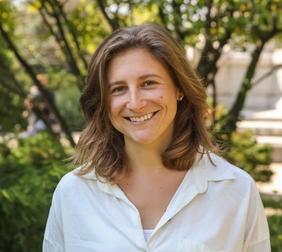
Hannah Borenstein
Hannah Borenstein is a writer and professor of Anthropology at Florida International University. She researches and writes about the intersections of gender, race, labor and running, with a particular focus on Ethiopia.
